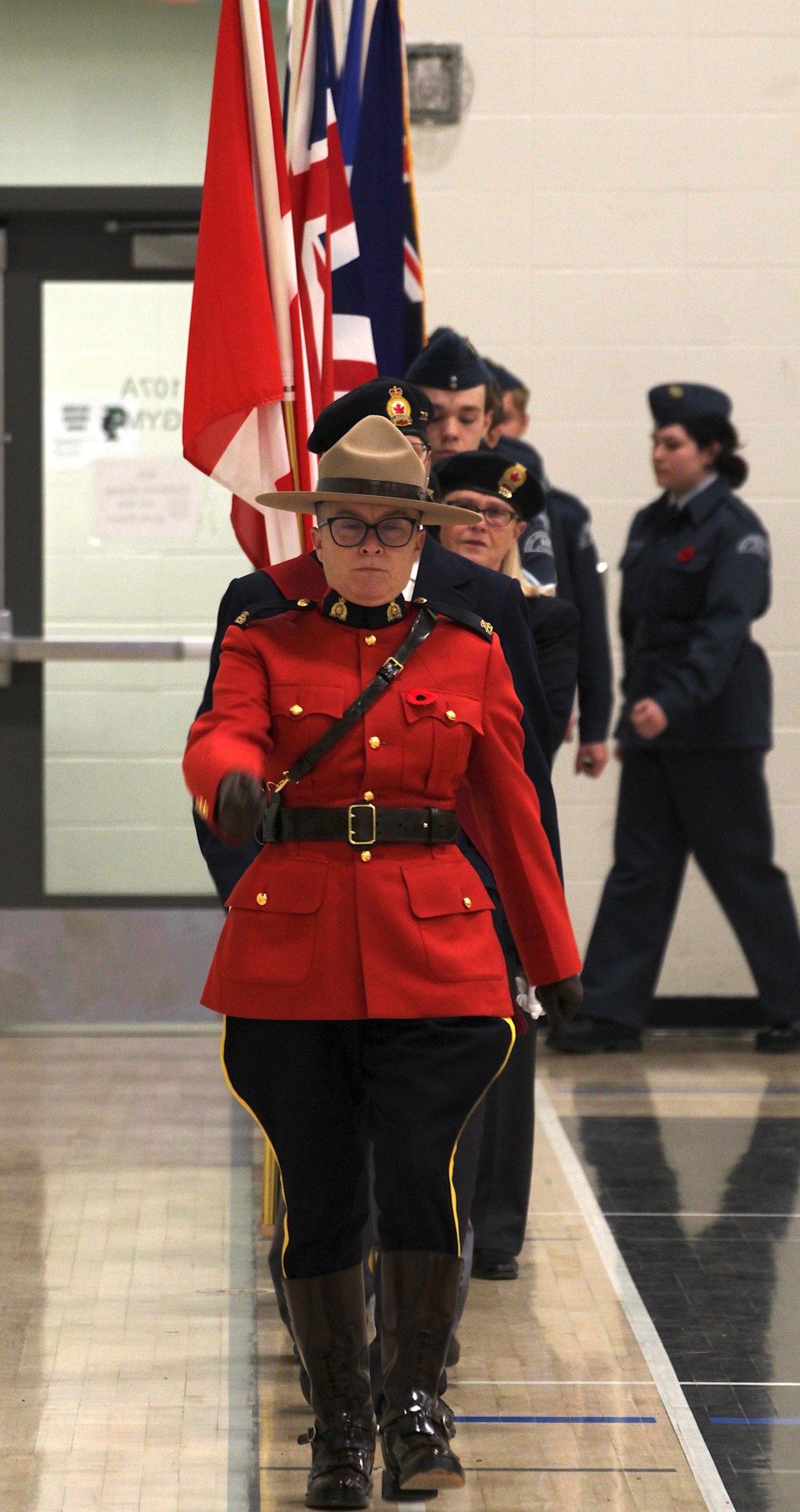Fifty years ago, 32 Canadian women forever altered the country’s image of the national police force when the first female officers were sworn into Troop 17 of The Royal Canadian Mounted Police.
Fifty years later, women officers make up some 22 per cent of RCMP members across the country. And although their numbers remain lower than their male counterparts, Cst. Rachel Dorrington of the Athabasca detachment said the door opened by the women of Troop 17 remains an important gateway into the profession.
“They were the Storm Troopers, they broke that glass ceiling, and it’s because of them that there are so many females in the RCMP,” said Dorrington in a May 16 interview.
Dorrington, 52, is one of two women officers stationed in Athabasca. She sports a closely cropped buzzcut, a tattooed head, and brings more than her training and skills acquired at Depot, the RCMP Academy in Regina, Sask. to the table.
Like members of Troop 17 who were pulled from other professions, Dorrington held jobs in other industries before being accepted into the RCMP at age 48. Before becoming a police officer, she was also a mother and a grandmother.
“I am originally from Nova Scotia, from a little village down close to Peggy’s Cove,” said Dorrington. She now has two grandchildren after raising three children on the East Coast and said her work experience as a mother often comes in handy in her current position.
“It’s been a very large advantage,” she said. “I have been a single mom raising kids, and to me it’s built up patience and resiliency. There are clients sometimes that we deal with that remind me very much of young children,” she added with a chuckle.
But motherhood and previous jobs working with children and vulnerable adults prepped her for the other aspects of the industry as well. In addition to doing searches of other women and gravitating towards kids when on calls, Dorrington is now a qualified child forensic interviewer — a position that at times requires broaching difficult topics.
“I take great honour in the fact that sometimes I’m the first person that those kiddos feel comfortable enough to be able to discuss those things with,” she said. “It’s quite an honour to know they trust you enough to be able to do that.”
Although she entered the field later in life than the 19 to 29-year-old Troop 17 cadets, Dorrington said she knew she wanted to join the RCMP from a young age.
“When I was growing up, my dad was in the Navy, and my one brother was in the army,” said Dorrington.
“I just gravitated towards some form of service, whether it be in the military or policing, and I fell in love with the idea of the RCMP being a federal police force, being able to be posted anywhere in Canada.”
Hailing from a village, Dorrington said the nearest RCMP presence was in Halifax, more than 40 kilometres away from Peggy’s Cove. Despite not having a strong visual presence in her own hometown, she said engaging with the community in Athabasca is one of her favourite parts of the job.
“One of the things I like about Athabasca is that it is small, and you get to know the people. Some of them you deal with a bit more regularly than others, but I really enjoy that aspect of it.”
Although she said she faces comments and criticisms about her gender from the public on an almost daily basis, Dorrington said her colleagues in the detachment see her as an officer, and the courtesy goes both ways.
“At the end of the day, whether you’re male or female, you have to make it through Depot,” she said. “The way I look at it is if you can go to Depot and you can make it through that six-and-a-half months and graduate, you deserve to be on the front lines just as much as your male counterparts.”
Even if Dorrington doesn’t categorize officers by gender, she does recognize the importance of the visibility of women in policing. She is aware that, like the women of Troop 17, her uniform is a symbol to young girls and other women of what is possible 50 years after the autumn of 1974.
“I’ve gone home several times since I’ve been out here, and my grandson asked if I could go talk to his school,” said Dorrington. “It was parents of girls who came up to me afterwards and were very happy that I was there and speaking to them because they want their daughter to see that it is a job that is possible.”
With two daughters of her own, Dorrington said she tries to instill the same messaging to girls — and boys — today.
“Being a female in a male-dominated environment, it’s inevitable — you’re going to come up against some challenges,” she said.
“But if I could talk to the girls and let them know that they have just as much reason to be RCMP or law enforcement with the boys, that hits home with a few of them.”



